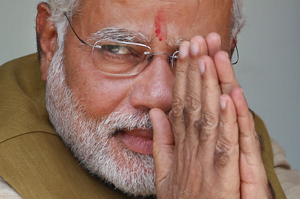 New Delhi, May 29: Prime Minister Narendra Modi has unveiled his top 10 policy priorities seeking to unblock an investment logjam and setting deadlines for action in order to revive the economy.
New Delhi, May 29: Prime Minister Narendra Modi has unveiled his top 10 policy priorities seeking to unblock an investment logjam and setting deadlines for action in order to revive the economy.
After a cabinet meeting in New Delhi, Parliamentary Affairs Minister Venkaiah Naidu said the Prime Minister stressed on three issues: efficient governance, delivery and implementation.
Naidu said PM Modi suggested that the proposals from the state governments would be given importance. Quick ministerial response is needed in such matters, Naidu insisted.
Naidu said that the ministers have been asked to prepare a roadmap for the first 100 days, create a priority list and quickly resolve key issues of concern.
Speaking about the Lok Sabha schedule, Naidu said the Budget session will begin on June 4 and conclude on June 12. Naidu said the Speaker of the 16th Lok Sabha will be elected on June 6. BJP has recommended senior leader Kamal Nath's name for the post of pro-tem speaker.
In an interview to The Hindu, Nripendra Misra, newly named as principal private secretary in the Prime Minister's Office had said on Wednesday that Modi's policy priorities will "necessarily have to be implemented in a time-bound manner". They would focus on overcoming delays to major infrastructure projects and addressing why India has become a coal importer'' he added.
Here is Modi's 10-point charter to his cabinet colleagues:
1 Build confidence in bureaucracy
2 Welcome innovative ideas & babus will be given freedom to work
3. Education, health, water, energy and roads on priority
4. Transparency in the government. E-auction to be promoted
5. System will be placed for inter-ministerial issues
6. People-oriented system to be in placed in government machinery
7. Addressing all economy related concerns
8. Infrastructure and investment reforms
9. Implement policy in time-bound manner
10. Stability and sustainability in government policy





Comments
Add new comment